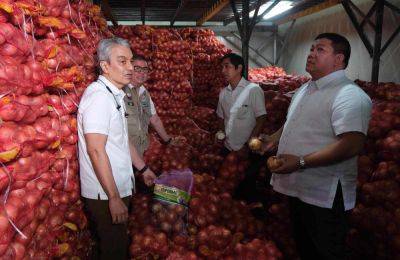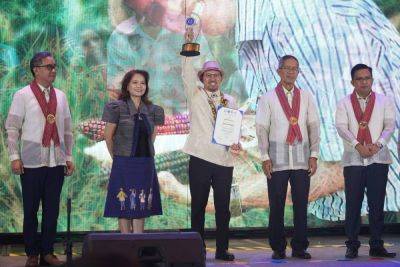Agriculture sector shrinks by 2.3% in Q2
MANILA, Philippines — The country's agriculture, forestry and fishing sector shrank by 2.3% in the second quarter, according to the Philippine Statistics Authority (PSA) on Thursday.
This is the lowest that the agriculture, forestry and fishing sector has fallen in the past four years.
The contraction coincides with a more than 900,000 decline in laborers in the agricultural and forestry sector, which was attributed to the heatwaves caused by the El Nino phenomenon.
According to data from the PSA, the decline was largely driven by the decline in palay (rice), which also fell by 9.5%. Corn also fell by %19.2.
The PSA also found the following agricultural products on the decline: sugarcane and muscovado, banana, coconut, cassava, mango, rubber, coffee and tobacco.
However, the rest of the subsectors under agriculture, forestry and fishing expanded. These include fishing and aquaculture, animal production, forestry and logging and cacao.
Following this decline in agriculture output, National Economic and Development Authority (NEDA) Secretary Arsenio Balisacan said that the government needs to further invest in the agriculture sector.
The Philippines' official development assistance in 2023 reached $37.29 billion, a majority of which went to infrastructure. Agriculture got a mere $4.16 million of the ODA cut last year.
"Agriculture is the most vulnerable sector in the economy when it comes to climate change, and we have to invest in ensuring that the sector is protected from the adverse impacts of climate change," Balisacan said in a press briefing.
The NEDA Secretary admitted that there is a growing gap between what the Philippines could produce and the growing population.
"We can reduce that gap by increasing productivity in agriculture," Balisacan said.
Balisacan said that there are ongoing discussions with the World Bank and the Asian Development Bank for the agriculture sector.
Asked how Executive Order 62 could impact farmers, Balisacan said that it was necessary. The said EO had slashed import tariffs on agricultural products, including rice.
“The rice sector could have contracted and therefore the employment reduced, notwithstanding the





